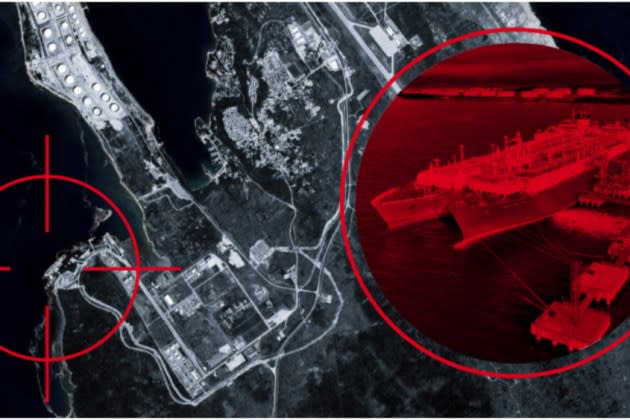Croatia’s Drugi Plan, Germany’s Nadcon, Italy’s Fabula Team Up on Geopolitical Eco-Thriller ‘Greater Adria’ (EXCLUSIVE)

A pulse-pounding, pulled-from-the-headlines story of political intrigue set against the backdrop of Europe’s green revolution is at the heart of “Greater Adria,” an ambitious, pan-European co-production being prepped by some of the continent’s top independent TV producers.
The series, co-created by Nebojša Taraba and Simona Nobile, is produced by Taraba for Croatia’s Drugi Plan, Peter Nadermann of Germany’s Nadcon Film and Marco de Angelis for Italy’s Fabula Pictures. Also on board is Belgian distribution and production outfit Lumiere, the leading distributor in the Benelux region, while public broadcasters HRT from Croatia and RTV of Slovenia are among the financiers.
More from Variety
“Greater Adria” begins with a trans-national European green party calling for a referendum to ban all present and future exploitation of oil and gas in the Adriatic Sea. But the unexplained death of a well-known Italian scientist in the coastal town of Rijeka fuels suspicion of a sprawling international conspiracy. To unravel the mystery, a pair of Italian and Croatian police inspectors team up with a teenage hacker and eco-terrorist to try to save the future of green energy in Europe.
The story was inspired in part by the crippling energy crisis that struck Europe at the outset of the war in Ukraine, and the political, economic and social shockwaves that rippled across the continent after the Russian invasion. Though set in the near future, “Greater Adria” takes a long view of what the consequences could be for millions of Europeans. “Hopefully, the war will be over. But obviously, the energy crisis will remain,” says Taraba.
Though unspooling as a fast-paced, geopolitical thriller, the series at its core focuses on individuals whose lives are suddenly caught up in the wider conspiracy. “To tell this story with all its implications…we want to tell it as a very personal story, but with all the background of real life at the moment,” says Nadermann. “We think it’s a very contemporary show.”
The former ZDF and ZDF Enterprises executive, who co-founded Cologne-based Nadcon, is one of the pioneers of the Nordic Noir genre. His extensive credits include genre-defining Scandi series “The Killing” and “The Bridge” as well as Stieg Larsson’s “Millennium” trilogy.
Along with his creative chops, Taraba praised the German producer’s savvy at mounting the sorts of intricate, international co-productions that are increasingly a focus of his Croatian company, best known for the Netflix political crime thriller “The Paper” and HBO’s noirish thriller “Success.” Earlier this year, Taraba wrapped production on Season 2 of the Croatian-Ukrainian crime drama “The Silence,” which Drugi Plan produces alongside Croatian broadcaster HRT in collaboration with Beta Film and Ukraine’s Star Media. The company is also partnering with Iceland’s Act 4 to co-produce “Volcano,” an eight-part eco-thriller about the aftermath of a deadly volcanic eruption.
“Greater Adria” unites three of Europe’s leading independent production houses, each backed by one of the continent’s entertainment juggernauts. Munich-based production, financing and distribution powerhouse Beta Film holds a majority stake in Taraba’s Zagreb-based outfit, while Pascal Breton’s Paris-based Federation Entertainment has a 51% stake in Fabula, Nicola and Marco de Angelis’ leading Italian production company, and ZDF Studios owns 49% of Nadermann’s Nadcon.
The show, which aims to go into production in spring 2024, would also be the first television co-production between Croatia and neighboring Italy. It’s a step toward acknowledging, says Taraba, that his country — born from the dissolution of the former Yugoslavia — isn’t historically and culturally bound to the Balkans alone.
“Our region is also Austria, Slovenia, Italy. Croatians, the main point of self-identification for us is Mediterranean,” he says. “With Italy, we have a common sea. We have almost the same mentality. That’s somehow deeply within our DNA.”
The groundbreaking collaboration, he adds, could be a game-changer for staging ambitious co-productions in the region. “We are the first, which is not a very comfortable position — breaking the ice. But we really have the strongest possible partners in this case,” he says. “We hope that we can set up a model for others to follow.”
Best of Variety
Sign up for Variety’s Newsletter. For the latest news, follow us on Facebook, Twitter, and Instagram.
